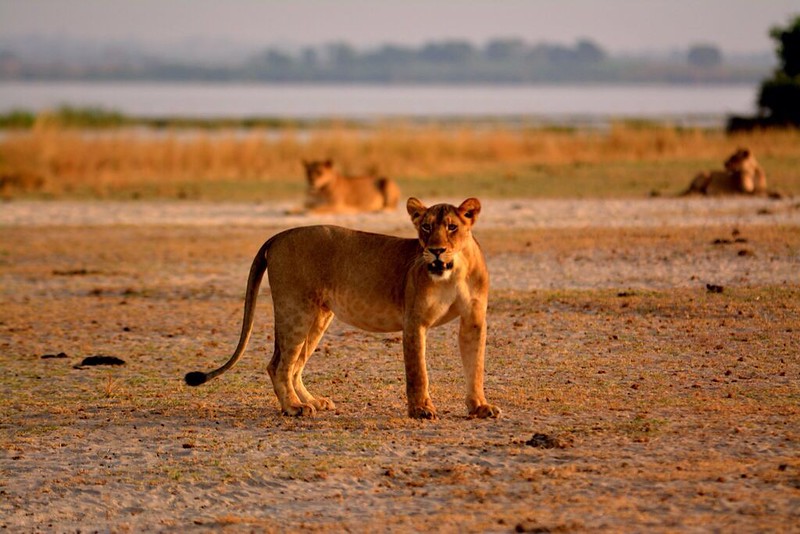What to see and do in Uganda. Uganda is known as the "pearl of Africa,"…
Tips on Driving in Kenya
Tips on Driving in Kenya, Kenya is the most developed country in East Africa and a famous place for safaris. Whether you are going there for a safari, a vacation, business, or to see family and friends, you should know how to drive and get around the country safely. Kenya’s rich culture and wildlife are supported by its unique geography, which makes driving in Kenya a great thing to do while you’re there.
What are the rules for driving in Kenya? You need to know them whether you bring your own car or rent a safari vehicle like a campervan, 4×4, or SUV. Kenya has a good road system that joins all of its 47 counties, but that’s not the only thing that makes driving in Kenya enjoyable. We will talk about how to get into Kenya, the rules and laws for driving there, and the basic road conditions, norms, and etiquette for driving in Kenya in this piece. These driving tips will help you get around Kenya easily.
How to Drive in Kenya in General
Always wear your seat belt.
Always wearing your seatbelt is the most important safety tip. Putting on a seatbelt cuts your risk of dying in a car accident in half and keeps you safe in case of an accident.
Pay attention to the speed limit:
On many roads in Kenya, speed limits have been set, and drivers must strictly follow them. In this case, the Thika Superhighway has two speed limits: the middle fast lane can only go 110 km/h and the other lanes can only go 80 km/h. Kenyan traffic rules say that people who speed will be fined a lot of money.
Keep a safe space between you and the car in front of you at all times.
On Kenyan roads, you should leave about 6 feet (1.8 meters) of space between your car and the one in front of you. Kenyan traffic laws say that drivers should keep a safe space between themselves and other cars so that other cars can help in an emergency. The Automobile Association of Kenya also says that you should leave enough space between your car and the one in front of you.
Indicators should always be used when passing or changing lanes:
On the road, drivers talk to each other through their signal lights. Along with stop lights, danger warning lights, headlights, and rear lights, they are an important part of a car’s signaling system. Some new drivers might not realize they are not using their warning lights correctly. People who send and receive signs need to use the same script. To avoid confusion, new drivers should know when to use their turn signals and when not to.
Kenya has laws against driving while drunk:
One of the main reasons people get into car crashes in this country is that they are drunk and driving. There are many drivers, both new and experienced, who get behind the wheel while they are drunk or high.
Do not get upset on the road:
A lot of drivers think they are the only ones on the road who are smart, even when they are wrong. When drivers are angry or upset on the road, they may break the rules without meaning to. If new drivers aren’t sure what to do, they should avoid arguments behind the wheel and ask for help from traffic officials.
When going during the wet seasons, be very careful:
Kenya has wet seasons from March to July and September to November. The roads can be very dangerous during these times. Water in the road can make your car hydroplane, so watch out for that and people walking around who might not be paying attention.
Do not use your phone while driving:
In Kenya, it is illegal to use your phone while driving because it is very dangerous and could cause an accident. To make a phone call, move to the side of the road, and to get directions, ask a passenger to help you. It is illegal to use your phone while driving, and you could get fined for it.
Make sure your car is always in good shape:
This includes checking the engine, changing the oil when it’s needed, keeping an eye on the tire pressure, and generally keeping your car in good shape. Even if you’re just sitting in the driver’s seat, you should still buckle up.
Be aware of speed bumps that aren’t marked;
Which are popular in many parts of Kenya, especially at the entrances to towns. You shouldn’t drive after 7 p.m. because potholes are hard to see and other cars’ lights are often very bright. Keep in mind that getting a flat tire is part of the fun because some parts of Kenya are very rough on tires. Most cars come with a jack, and any gas stop can fix small holes in the tires.
Kenya’s rules and laws about traffic
A student who doesn’t have the “L” sign: You will be fined Ksh. 1,000 if you are fresh out of driving school and don’t put the right “L” sign on the back and front of your car. Clause 12(1)(b) of the Kenya Traffic Act says that this sign is important and will help other people who are using the road.
As a driver, you can’t text or talk on the phone while you’re on the road. Things could go wrong if you don’t pay attention sometimes. If the cops see you, you will be fined Ksh. 2,000.
Dropping off and picking up people in strange places:
It is against the law for drivers to stop on purpose at illegal bus stops and hubs to drop off or pick up more commuters. As per Rule 56A (1), they need to pay a sum of Ksh. 3,000.
License to drive:
If you have one, stick to the classes you learned about vehicles. A Ksh. 7,000 fine will be given for not doing so. If you don’t update your license before it runs out, you will be fined Ksh. 1,000. You should always have your driver’s license on you, because not showing it when asked is a crime that can get you Ksh. 1,000. People who aren’t qualified or don’t have the right papers must pay Ksh. 7,000.
Name badge and outfit for drivers:
Every driver has to be in their official uniform, have ID, and have a picture of themselves in the car, matatu, or bus. People who break this rule are fined Ksh. 3,000.
Drivers for SV that are not authorized:
If you let someone drive a PSV who isn’t supposed to, you will be fined Ksh. 5,000. In Sections 12 (1) and (14) it says that you must always be in charge of the car.
Signs for traffic and police officers:
You will be fined Ksh. 3,000 right away if you are caught not paying attention to traffic signs. You will be charged Ksh. 5,000 if you drive on pedestrian paths. People who don’t pay attention to what traffic police say or show them will be fined Ksh. 3,000. You will be fined Ksh. 5,000 if you don’t stop when told to.
Getting insurance:
Keep your insurance cards with you at all times when you’re riding in a vehicle. You could spend many years or months in jail or pay a fine of Ksh. 100,000 if you are caught without it.
Going too fast:
At first, the NTSA set fees so that people who went over the speed limit by 1 to 5 km/h had to pay between Ksh. 500 and Ksh. 3,000. People who went over the limit by 6 to 10 km/h were charged Ksh. 3,000, and people who went over the limit by 11 to 15 km/h were charged Ksh. 6,000.
It will cost you Ksh. 10,000 for anything more than this. Under the new charges, an overrun of 1 to 5 km/h will lead to a warning. People who are caught going over 6 to 10 km/h will be fined Ksh 500. People who are caught going over 11 to 15 km/h will be fined Ksh 5,000. If you go faster than 16 to 20 km/h, you will be fined Ksh. 10,000.
Kenyan Laws and Penalties for Poor Vehicle Conditions PSVs that haven’t been given a name:
You will be fined Ksh. 5,000 if you are caught driving a Nissan, matatu, or bus that is not properly labeled with its correct path.
Belts for safety:
There are strict rules about seat belts. You will be charged Ksh. 1,000 per seat if you own a PSV that doesn’t have them. It costs Ksh. 14,000 for 14 chairs that don’t have seat belts.
Life jacket and fire extinguisher:
Every car should have bright warning signs, which are sometimes called “lifesavers,” in case the engine breaks down. If they are not there, they will have to pay a Ksh. 2,000 fine. You need to have fire extinguishers and fire tools, or you will be fined Ksh. 2,000.
Controls for speed:
It only covers cars for people and other business vehicles. Vehicles that don’t follow the speed limit signs will be fined Ksh. 2,000.
Window tint on a PSV:
Commercial buses, matatus, and Nissan should not use cars with windows that are covered. It’s against the law and costs Ksh. 10,000 to fix.
Number plates:
A Ksh. 10,000 fine is given to any car that doesn’t have identity plates or that has them but is installed incorrectly.


